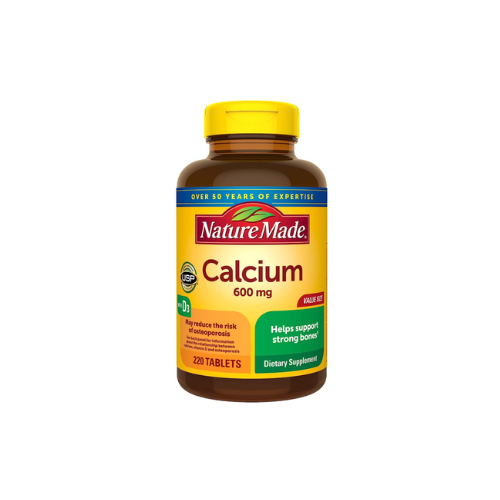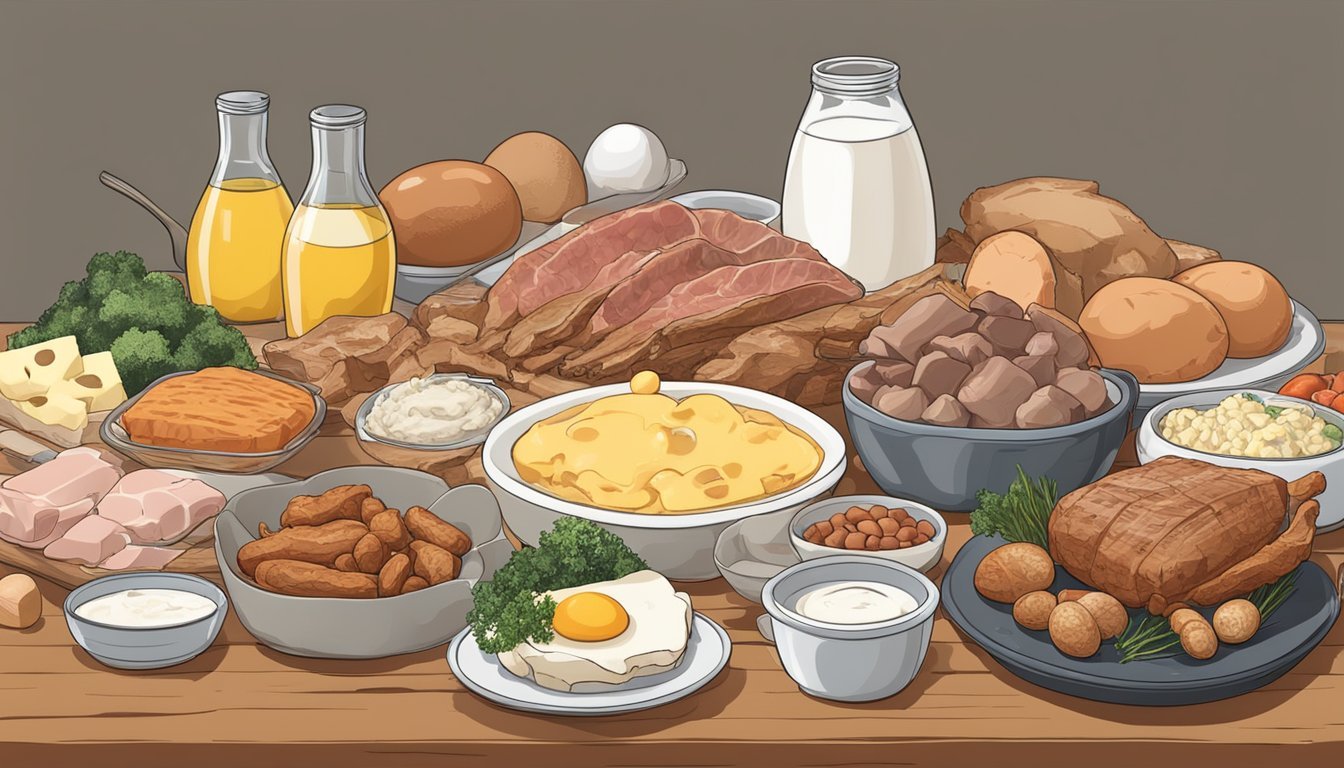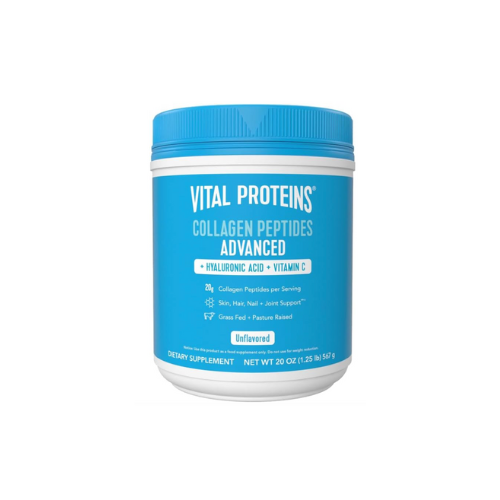The Carnivore Diet for People with Osteoporosis
Exploring Nutritional Impacts on Bone Health
The carnivore diet, characterized by an intake exclusively of animal products, has garnered attention for its potential impact on various health aspects, including bone health. While osteoporosis, a condition that results in weakened bones and an increased risk of fractures, traditionally prompts considerations of a diet rich in calcium and vitamin D, the role of a meat-dominated dietary pattern requires careful examination. Individuals with osteoporosis are often advised to optimize their nutrient intake to support bone health, and emerging discussions suggest that the high protein content of the carnivore diet may offer benefits in this regard.
Nutrition plays a crucial role in the management and prevention of osteoporosis. Protein, as well as calcium and vitamin D, are essential for maintaining bone density and strength. The carnivore diet raises questions about its ability to meet these nutritional requirements given its exclusion of commonly recommended sources of calcium and vitamin D, such as dairy products and fortified foods. However, anecdotal reports indicate that some individuals with osteoporosis who follow a carnivore diet have experienced benefits, which has led to increased curiosity and scrutiny among healthcare professionals and patients alike.
The relationship between the carnivore diet and bone health is multifaceted, involving the interplay of protein intake, absorption of critical minerals, and the body's hormonal responses. As the community looks toward diets that may help manage or improve osteoporosis symptoms, the carnivore diet's alignment with established nutritional guidelines for bone health is under exploration. This article delves into whether a carnivore diet can provide the necessary nutrients for bone maintenance and the potential implications for those living with osteoporosis.
Understanding Osteoporosis
To comprehend osteoporosis, it's essential to examine the interplay of factors like bone density, key nutrients, hormonal changes, and the role of exercise in maintaining bone health.
Bone Mineral Density and Aging
As individuals age, bone mineral density (BMD) typically declines. This decrease in BMD is a major factor in the development of osteoporosis. The bones gradually become thinner and weaker over time, increasing the risk of fractures.
Calcium Absorption and Vitamin D's Role
Calcium is critical for bone health, and Vitamin D enhances its absorption in the body. Insufficient levels of Vitamin D can lead to reduced calcium absorption, undermining bone density and structure.
Calcium: Required for strong bone formation.
Vitamin D: Facilitates calcium absorption in the gut.
Discover the endless possibilities of buying calcium and vitamin D online!
The Impact of Estrogen and Testosterone on Bones
Estrogen and testosterone have significant effects on bone density. Estrogen protects bone mass, and its decline during menopause can accelerate bone loss. Testosterone also influences bone density, where lower levels can weaken bones.
Estrogen: Shields bone mass, especially in women.
Testosterone: Affects bone density in both men and women.
Physical Activity and Bone Health
Physical activity is a foundational element in supporting bone density and strength. Weight-bearing exercises stimulate bone formation and slow down bone mass loss associated with aging.
Exercise: Encourages bone growth and reduces loss.
Bones require regular stimulation through activity to maintain their density.
Principles of the Carnivore Diet
The Carnivore Diet is characterized by its exclusive consumption of animal products and high macronutrient content from protein and fats. This section explores the foundational elements of this dietary pattern, focusing on its macronutrient composition and potential nutritional implications.
High Protein and Fat Intake
The Carnivore Diet largely comprises animal proteins and fats, being almost entirely devoid of carbohydrates. Protein sources include meat, poultry, fish, and eggs, which are known to be complete proteins containing all essential amino acids. Fats are sourced from both the animal products themselves and added fats such as butter or ghee in cooking.
Protein sources: Meat, fish, eggs
Fat sources: Meat fat, butter, ghee
Online stores offer unbeatable prices for ghee, so don't miss out!
Exclusion of Plant-Based Foods
A cornerstone principle of the Carnivore Diet is the exclusion of plant-based foods. Individuals following this diet do not consume fruits, vegetables, grains, nuts, seeds, or legumes. The rationale is founded on an argument that human evolution favored a diet rich in animal products.
Potential Nutrient Deficiencies
Given the absence of plant-based foods, individuals following the Carnivore Diet may be at risk of certain nutrient deficiencies. These can include vitamins typically found in fruits and vegetables, such as Vitamin C and fiber. Attention to the variety of animal-based foods, including organ meats, can be important to mitigate the risk of these deficiencies.
Nutrients of concern: Vitamin C, fiber, some B vitamins, and antioxidants
Nutrition and Bone Health
Proper nutrition is a cornerstone of bone health, particularly for individuals on a Carnivore Diet. It focuses on the intake of specific macronutrients and micronutrients that are crucial for maintaining bone strength and integrity.
Macronutrients and Bone Strength
Protein is fundamental for bone structure. It makes up about 50% of bone volume and a third of its mass. However, the balance of protein intake is critical, as excessive consumption might lead to increased calcium excretion. For those on a Carnivore Diet, it’s essential to monitor and balance protein sources with other bone-supportive nutrients.
Micronutrients Essential for Bone Integrity
Bone integrity relies on a variety of micronutrients:
Calcium: Vital for bone mineral density; a deficiency can lead to brittle bones.
Magnesium: Works in tandem with calcium, influencing bone density and overall bone health.
Vitamin D: Facilitates calcium absorption; without it, calcium cannot be effectively utilized.
Vitamin K: Essential for bone metabolism and maintaining calcium in the bones.
Phosphorus: Along with calcium, it forms the primary mineral component of bones.
Adequate intake of these micronutrients is crucial for people with osteoporosis, particularly given that their dietary choices might restrict certain food groups.
Dietary Sources of Key Nutrients
Individuals following a Carnivore Diet should focus on these nutrient-rich foods:
Protein
Sources: Meat, Fish, Eggs
Calcium
Sources: Bone broth, Dairy (if included)
Magnesium
Sources: Fish, Shellfish
Vitamin D
Sources: Fish, Egg yolks, Liver
Vitamin K
Sources: Liver, Eggs, Fish
Phosphorus
Sources: Meat, Fish, Eggs
Inclusion of dietary supplements or fortified foods is another strategy to ensure that all necessary nutrients are consumed, especially for those nutrients that are naturally scarce in animal products, such as vitamin C.
Foods to Emphasize on a Carnivore Diet
For individuals with osteoporosis, selecting nutrient-rich options within the carnivore diet is crucial for maintaining bone health. Emphasizing foods high in calcium, vitamin D, and other bone-supporting nutrients is key.
Meat and Fish Rich in Nutrients
Meat and fish are fundamental in a carnivore diet and provide essential nutrients for bone health. One should prioritize:
Beef: Particularly high in protein, supporting muscle maintenance vital for bone protection.
Fatty fish: Such as salmon and mackerel, which are sources of vitamin D and omega-3 fatty acids.
Dairy Products and Bone Health
Dairy products are an excellent addition to the carnivore diet for bone health, as they are rich sources of calcium and vitamin D, crucial for bone density.
Cheese: Hard cheeses like cheddar contain calcium and vitamin D.
Milk: Whole milk provides both vitamin D and calcium in significant amounts.
Eggs, Liver, and Other Nutrient-Dense Meats
Eggs and organ meats are packed with vitamins and minerals. They play an important role in a balanced carnivore diet for those with osteoporosis:
Eggs: Contain vitamins D and B12, both important for bone health.
Beef Liver: One of the most nutrient-dense foods, rich in vitamin A and iron.
Prioritizing these nutrient-dense meats can aid in maintaining strong bones and overall health in the context of a carnivore diet.
Addressing Potential Risks
When adopting a carnivore diet for individuals with osteoporosis, it is essential to carefully consider the balance of certain nutrients and the potential long-term effects on bone health and overall well-being.
Balancing Calcium and Phosphorus
A carnivore diet, primarily consisting of animal products, can pose the risk of providing high levels of phosphorus in relation to calcium. Calcium is critical for bone health, whereas phosphorus aids in bone formation. However, an imbalance, especially a diet heavier in phosphorus, can contribute to bone resorption. Sustaining a balanced intake is key, as the ratio of these minerals is crucial for maintaining bone density.
Recommended Foods: Dairy products focusing on balance with phosphorus-rich meats
Concerns About Sodium and Blood Pressure
Meats, particularly processed varieties, often contain significant amounts of sodium, which may contribute to high blood pressure (hypertension)—a risk factor for heart disease. Attention should be given to sodium intake when on a carnivore diet, as high blood pressure can further complicate osteoporosis.
Strategies: Choose fresh, unprocessed meats; avoid adding extra salt during cooking or at the table
Reduction of Inflammatory Foods
Inflammation can negatively impact bone health. Certain dietary choices in a carnivore diet may help manage inflammation. Opting for meat sources that are high in anti-inflammatory omega-3 fatty acids could potentially benefit individuals with osteoporosis.
Meat Selection: Fatty fish like salmon and mackerel; grass-fed meat selections for higher omega-3 content
Avoid: Processed and charred meats which may have pro-inflammatory effects
Overall Long-Term Health Risks
A long-term carnivore diet could carry risks such as vitamin deficiencies, colorectal cancer, and heart disease. For bone health specifically, a lack of nutrients that support bone maintenance, like vitamin K and magnesium—commonly found in plant-based sources—could contribute to weakened bone structure over time.
Mitigation Measures: Consider supplementation; regular medical checkups for nutritional balance and bone density monitoring
Supplementation and the Carnivore Diet
When adopting a carnivore diet, individuals with osteoporosis must pay special attention to supplementation to support bone health. Supplements can help provide nutrients that might be lacking or suboptimal in this diet.
Vitamin and Mineral Supplements
The carnivore diet, being exclusively animal-based, typically includes an adequate amount of protein, which is essential for bone health. However, certain vitamins and minerals that are crucial for bone maintenance may be in short supply.
Vitamin D: Naturally found in fatty fish and egg yolks, vitamin D is pivotal for calcium absorption. A person may need additional vitamin D supplements, especially if sun exposure is limited.
Recommended Daily Allowance (RDA): The RDA for adults is 600-800 IU, with a higher dose often recommended for those with osteoporosis.
Vitamin K2: This vitamin is important for bone mineralization and is found in meat, particularly organ meats. Supplementation might be beneficial if one's diet lacks variety.
Foods: Beef liver is a notable source of Vitamin K2.
Calcium: While this diet can supply calcium through dairy products for those who include them, calcium supplementation could be necessary to reach the daily requirement.
RDA: The RDA for adults is 1000 mg, increasing to 1200 mg for women over 50 and men over 70.
Magnesium: Essential for bone health and widely available in fish and meat, the RDA for magnesium is 400–420 mg for men and 310–320 mg for women.
Bone Building Supplements
In addition to vitamins and minerals, individuals with osteoporosis should pay attention to supplements that specifically promote bone strength and density.
Omega-3 Fish Oil: Known to support bone density, omega-3 supplements can be an integral addition to the carnivore diet.
Dosage: Varies depending on the product, but a common recommendation is 1-3 grams daily.
Collagen Peptides: While not a traditional supplement, collagen can support bone health and is found in bone broth—a fitting inclusion for those on the carnivore diet.
By strategically incorporating these supplements, individuals following the carnivore diet can better ensure they are receiving the necessary micronutrients for optimal bone health.
Experience the convenience and savings of buying omega-3 and collagen peptides online!
Lifestyle Considerations for Osteoporosis
Managing osteoporosis involves more than just dietary adjustments; it requires a holistic approach that includes lifestyle modifications. Proper exercise and weight management play crucial roles, as do the mitigation of factors such as alcohol and caffeine consumption.
The Role of Exercise and Weight Management
Exercise is fundamental for bone health. Weight-bearing activities such as walking, jogging, and strength training stimulate bone formation and can help prevent bone loss. Key exercises include:
Strength Training: Lifting weights, using resistance bands
Impact Activities: Brisk walking, dancing, or aerobics
For individuals with osteoporosis, exercise should be balanced with weight management to avoid excess stress on bones that could lead to fractures. A healthy weight supports overall physical health and reduces the pressure on the skeletal system.
Mitigating Factors like Alcohol and Caffeine Consumption
Individuals with osteoporosis should limit alcohol intake, as excessive consumption can lead to decreased bone density and increased risk of falls. It is generally recommended to limit alcohol to:
No more than 1 drink per day for women
No more than 2 drinks per day for men
Similarly, caffeine consumption should be moderated, as it can interfere with calcium absorption and potentially exacerbate bone loss. Limiting caffeine to less than 400 mg per day — equivalent to around 4 cups of brewed coffee — can help mitigate this risk.
Special Populations and Considerations
Individuals with osteoporosis often represent varied demographics with distinct dietary requirements. It's crucial for these groups to approach the carnivore diet with careful consideration to sustain bone health within their specific physiological contexts.
Post-Menopausal Dietary Needs
Post-menopausal women experience a significant decrease in estrogen, a hormone that plays a vital role in bone density maintenance. As estrogen levels drop, the risk of osteoporosis increases, making bone health a primary nutritional concern. It is essential for post-menopausal women to include nutrients specifically beneficial for bone health. Phytoestrogens, found in certain plant foods, while not included in a strict carnivore diet, may also be considered for their potential role in maintaining estrogen balance. However, guidance from healthcare professionals is recommended to ensure nutritional adequacy while aligning with the principles of a carnivore diet.
Individuals with Kidney or Liver Issues
Individuals with existing kidney or liver issues require special dietary adjustments, as these organs are instrumental in filtering and processing the nutrients that impact bone health. A diet high in protein, typical of a carnivore dietary pattern, may put additional strain on the kidneys. Therefore, such individuals must monitor their protein consumption and consider a tailored approach to the carnivore diet that balances their protein intake with their organs' capacity to manage it. The liver plays a central role in synthesizing vitamin D, which aids in calcium absorption; hence, a compromise in liver function may necessitate a reevaluation of vitamin D sources and potential supplementation. Consulting healthcare providers is key to formulating a diet that supports both bone health and the function of these critical organs.
Conclusion
The carnivore diet, focusing solely on animal products, raises questions regarding its impact on individuals with osteoporosis. Nutrition plays a vital role in maintaining bone health, and essential nutrients like calcium and vitamin D are crucial.
A carnivore diet may provide high-quality protein, which is beneficial for bone health, but it lacks certain nutrients like calcium and vitamin D, typically found in dairy products and fortified foods. Individuals adhering to this diet should consider the risk of nutrient deficiencies and their potential impact on osteoporosis.
It is advisable for individuals following a carnivore diet to ensure adequate nutrient intake through careful meal planning or supplementation. Bone-boosting nutrients to focus on include:
Calcium: Vital for bone structure and strength.
Vitamin D: Facilitates calcium absorption.
People with osteoporosis should consult healthcare professionals before adopting a carnivore diet. A balanced approach, incorporating a variety of nutrient sources, may be more effective in supporting bone health and preventing the progression of osteoporosis.












